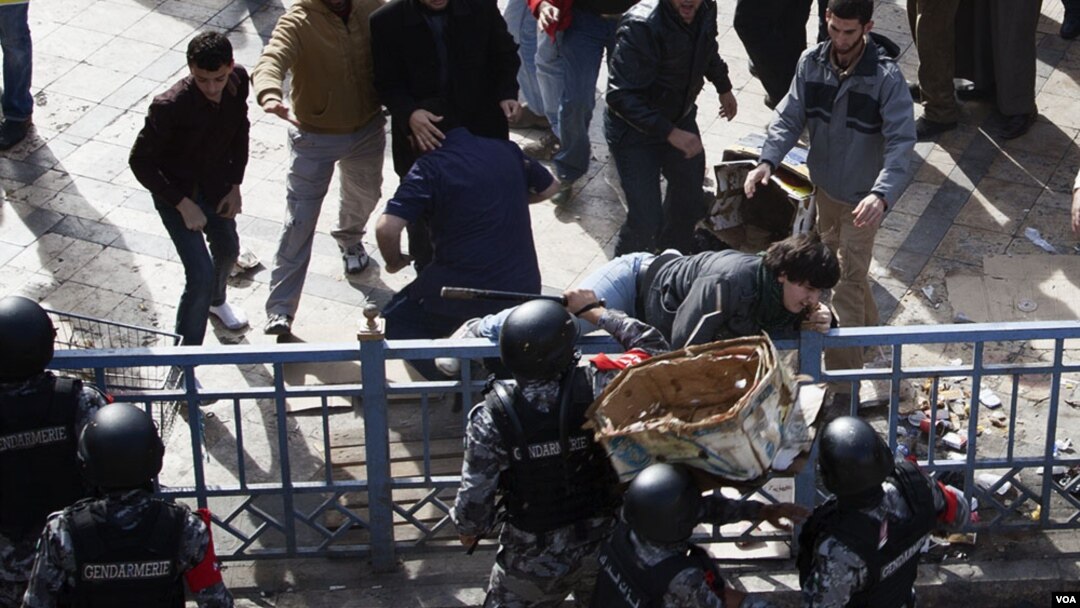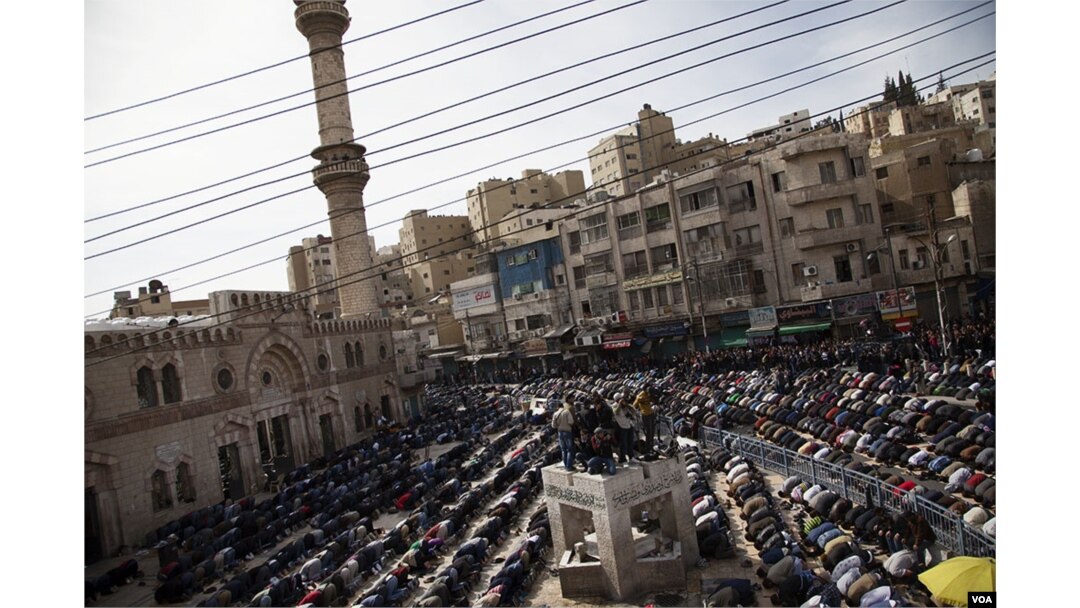AMMAN —
Protesters in Jordan declared Friday a day of rage as anger sparked by a cut in fuel subsidies boiled over into a call for revolution.
Protesters outside Amman's main mosque gathered Friday for the strongest-yet anti-monarchy rally in the capital, with calls for revolution and for King Abdullah to reform or step down.
Jordan has been largely spared the turmoil sweeping much of the Arab world. But the government's cut in fuel subsidies Tuesday unleashed a wave of pent up anger, with strikes and protests breaking out across the country.
Among the protesters thronging downtown Amman Friday was Abdelrahman Khwasawneh, of the Islamic Action Front, the political arm of the Muslim Brotherhood.
He said too much pressure will lead to an explosion, noting it started with inflation in Tunisia, and extended into Egypt and Syria. He said “we do not want Amman to become a bomb that will explode.”
For all the outcry, fear that the chaos and further economic decline, that followed revolutions in other parts of the world, is keeping some people wary of outright revolution.
Suihaib Kalboneh, a porter, came to the protest not to call for the overthrow of the king,
He says he wants peaceful protest, not “vandalism” - using the government's description of violent protests in recent days. He says the king is dear to the people, but he, and everyone, wants reform and change.
Alleged widespread corruption by government officials is also fueling the anger, as are elections scheduled for January, which the main opposition group, the Islamic Action Front, says are unfair and are boycotting. Nimar al Assaf, deputy secretary of the party, says there must be a greater sharing of power. He describes the current leadership as an absolute monarchy, rather than the constitutional one it is on paper.
"We are not asking for something out of this world. We are asking for democratic practices which are practiced all over the world," said al Assaf.
Hassan Barriri, political science professor at Jordan University, says the country has reached a crossroads.
"We have to look at the sentiment of the people, which is really dangerous. There is a gap in trust between the state and society and this is unfortunately getting wider and wider and deeper and no one knows what is going to happen," said Barriri.
Protesters have called for further action, including a general strike Sunday.
Protesters outside Amman's main mosque gathered Friday for the strongest-yet anti-monarchy rally in the capital, with calls for revolution and for King Abdullah to reform or step down.
Jordan has been largely spared the turmoil sweeping much of the Arab world. But the government's cut in fuel subsidies Tuesday unleashed a wave of pent up anger, with strikes and protests breaking out across the country.
Jordanian Protests Call for Revolution
Among the protesters thronging downtown Amman Friday was Abdelrahman Khwasawneh, of the Islamic Action Front, the political arm of the Muslim Brotherhood.
He said too much pressure will lead to an explosion, noting it started with inflation in Tunisia, and extended into Egypt and Syria. He said “we do not want Amman to become a bomb that will explode.”
For all the outcry, fear that the chaos and further economic decline, that followed revolutions in other parts of the world, is keeping some people wary of outright revolution.
Suihaib Kalboneh, a porter, came to the protest not to call for the overthrow of the king,
He says he wants peaceful protest, not “vandalism” - using the government's description of violent protests in recent days. He says the king is dear to the people, but he, and everyone, wants reform and change.
Alleged widespread corruption by government officials is also fueling the anger, as are elections scheduled for January, which the main opposition group, the Islamic Action Front, says are unfair and are boycotting. Nimar al Assaf, deputy secretary of the party, says there must be a greater sharing of power. He describes the current leadership as an absolute monarchy, rather than the constitutional one it is on paper.
"We are not asking for something out of this world. We are asking for democratic practices which are practiced all over the world," said al Assaf.
Hassan Barriri, political science professor at Jordan University, says the country has reached a crossroads.
"We have to look at the sentiment of the people, which is really dangerous. There is a gap in trust between the state and society and this is unfortunately getting wider and wider and deeper and no one knows what is going to happen," said Barriri.
Protesters have called for further action, including a general strike Sunday.



